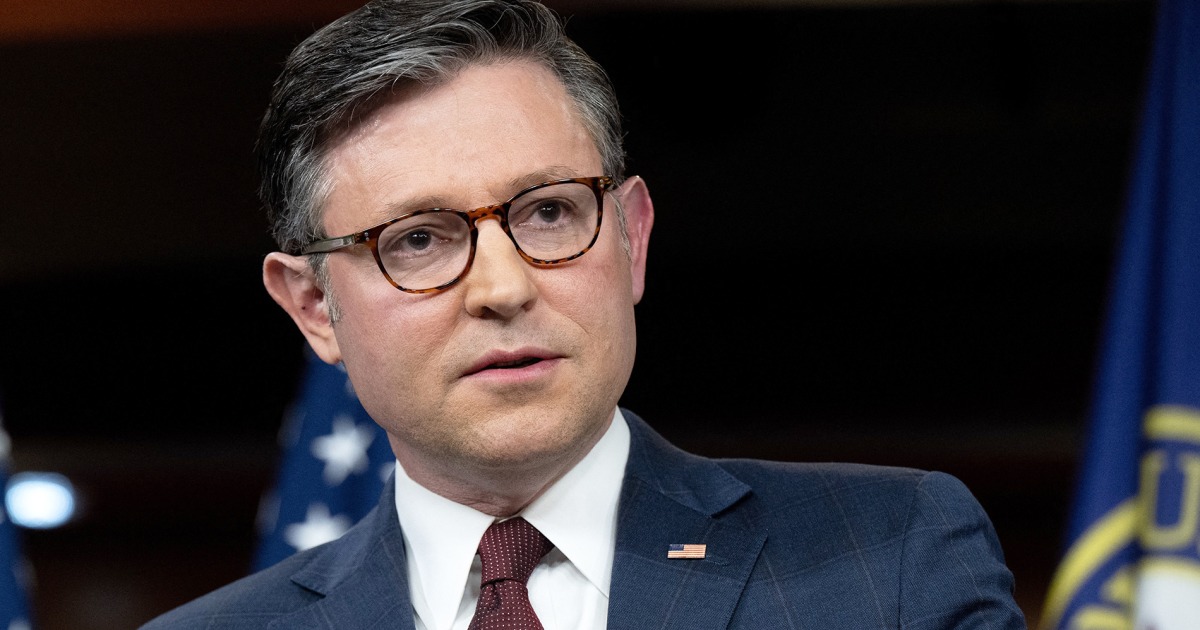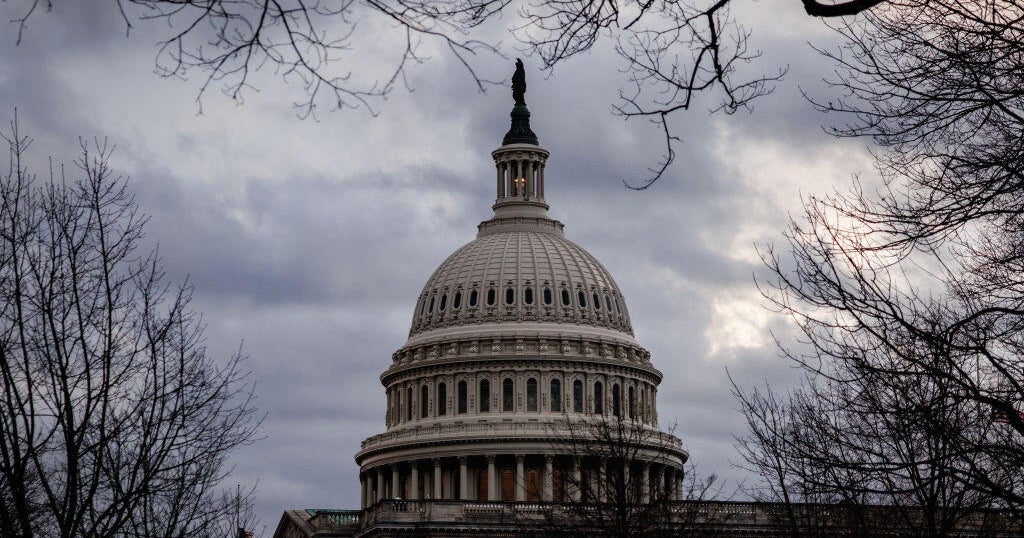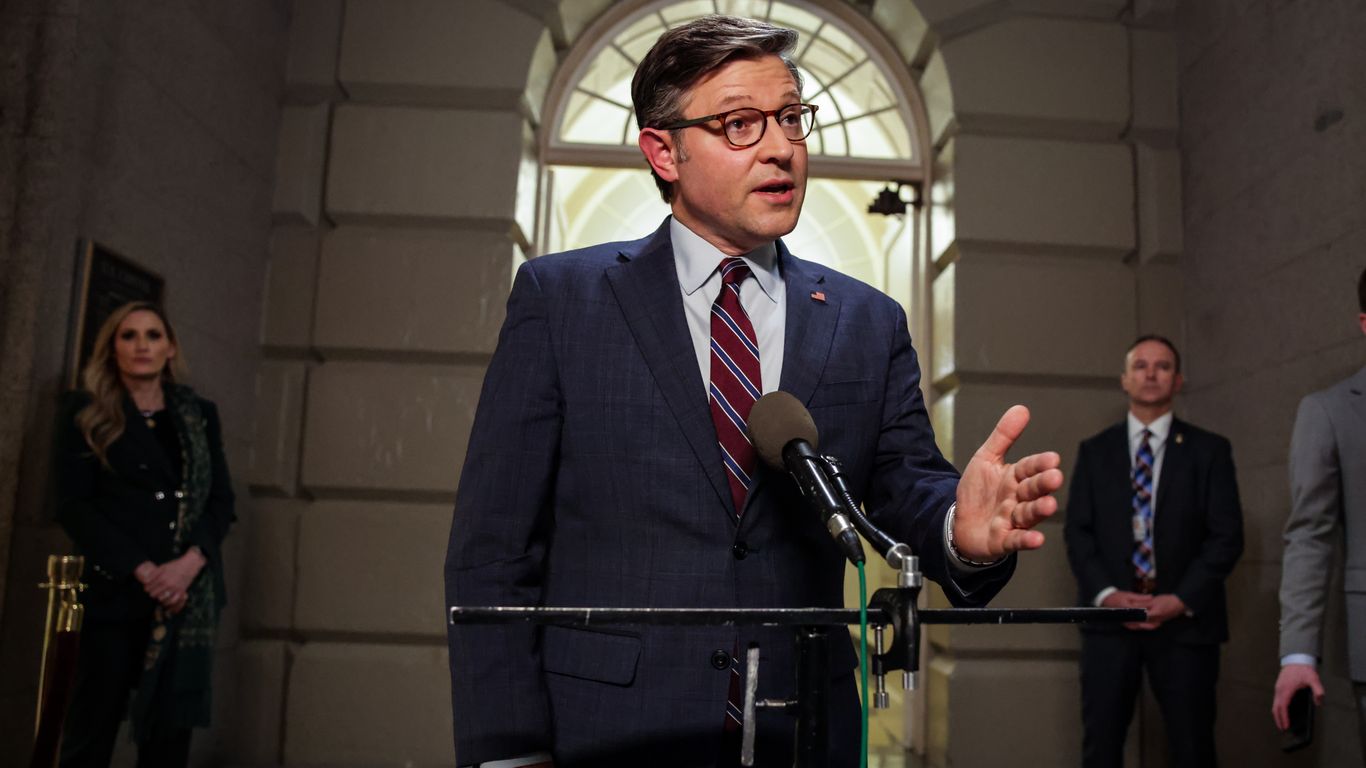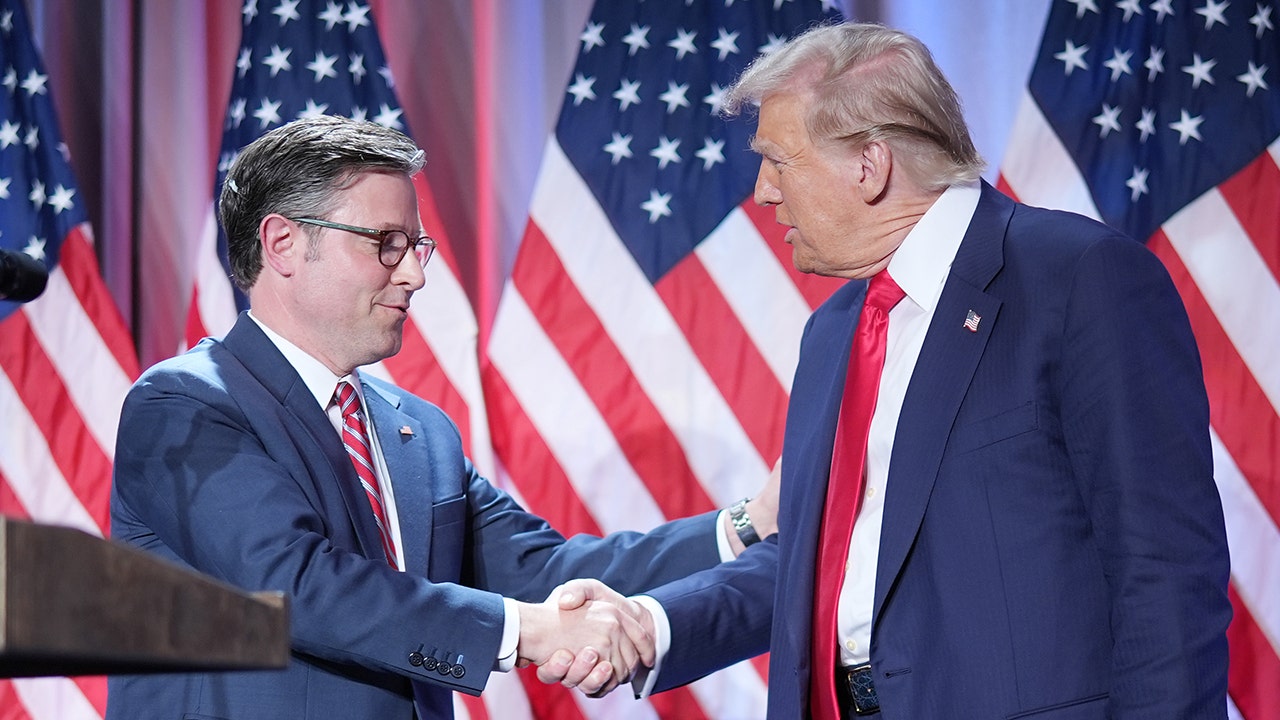House GOP Unveils Stopgap Bill to Prevent Government Shutdown
Republican leaders introduce a short-term funding bill, with key support from Trump, to avert a shutdown while increasing defense spending and reducing non-defense allocations.
Overview
House Republicans propose a 99-page stopgap funding bill to avoid a March 14 government shutdown. The bill includes increased defense spending and cuts to non-defense programs. Democrats oppose it, raising concerns over potential job losses and reduced social services. Speaker Mike Johnson plans a vote Tuesday, banking on near-unanimous GOP support to pass despite slim margins. Trump urges backing for the bill, framing it as a necessary step while emphasizing unity against potential Democratic opposition. Challenges loom in the Senate requiring bipartisan cooperation to ensure passage.
Report issue

Read both sides in 5 minutes each day
Analysis
- House GOP's stopgap funding bill aims to prevent a government shutdown while moderating non-defense spending and slightly increasing defense budgets, indicating a push to balance fiscal priorities amid congressional tensions.
- The bill faces opposition from Democrats who argue it represents a power grab for the White House, threatening critical social programs and allowing excessive influence from private entities like Elon Musk.
- Despite a thin majority, House GOP leaders are determined to pass the bill primarily with Republican support, betting on Presidential backing to rally votes while navigating challenges from within their own party.
Articles (15)
Center (10)
FAQ
The bill includes $892.5 billion for defense spending, a moderate increase from 2024 levels, and $708 billion for non-defense spending, which is about $13 billion lower than 2024 levels. It also includes additional funding for veterans' healthcare and Immigration and Customs Enforcement.
Democrats oppose the measure because they believe it threatens to cut funding for healthcare and social services, and they are concerned about the lack of protections for programs like Medicaid. They also view it as a partisan move that could lead to significant cuts in future budget negotiations.
History
- This story does not have any previous versions.












